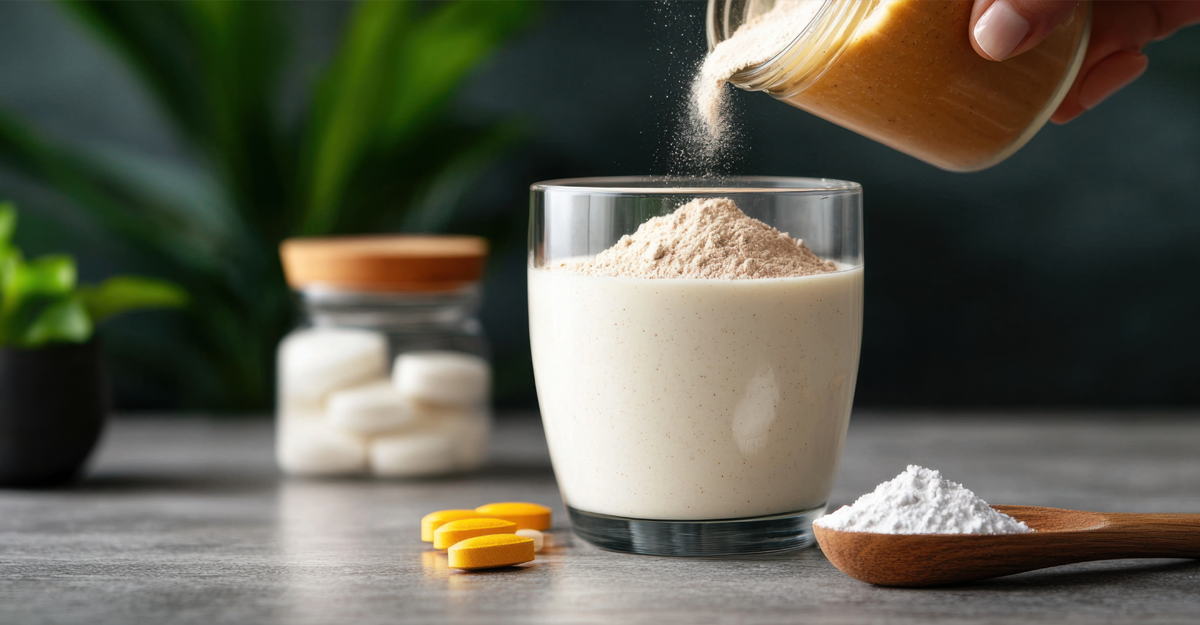
Berberine has several amazing benefits but someone recently asked me, what are the side effects of Berberine? I wasn’t familiar with many so I did some research to find out if there were any.
These are the Potential Side Effects of Berberine:
One article I found from The Examiner lists things to know about Berberine, including side effects of berberine:
- Berberine is able to activate an enzyme called AMPKÂ (Adenosine Monophosphate-Activated Protein Kinase)
- Due to AMPK  inhibition, berberine is normoglycemic (reduces blood sugar only if elevated). However, the reduction in blood sugar from berberine may make other hypoglycemics more likely to cause reduced blood sugar.
- High doses of berberine taken acutely, due to their poor intestinal uptake rate, may cause cramping and diarhhea; for this reason, berberine should be taken in multiple doses throughout the day.
- Berberine is known to inhibit CYP2D6 and CYP3A4 (an enzyme responsible for metabolism of toxins, drugs, carcinogens, etc.)
Berberine is one of the few supplements in the Examine.com database with human evidence that establishes it to be as effective as pharmaceuticals.
Now that’s interesting to me since unfortunately, there aren’t many sources that would state a supplement is as effective as pharmaceuticals. It also seems to me that due to AMPK suppression, the article is suggesting that berberine may help reduce blood sugar if it is elevated, but would not, if it isn’t. So for someone with elevated blood sugar, the article suggests berberine would not have side effects and in fact, might function more like adaptogens do. If you are unfamiliar with adaptogens, they are herbs (usually) that work with the body to increase or decrease the bodies ability to adapt to a specific situation. In that case, it might actually be better than a drug since it doesn’t have side effects.
However, it does go on to state that due to the increase in AMPK, berberine will have muscle-suppressing effects. Not to worry though, this can be reversed by intense workouts and activities like weight-lifting and strength-training exercises such as push-ups.
Probably the most important side effects of berberine to note (in my opinion) is that it inhibits the enzyme CYP3A4, a member of the Cytochrome P450 family. What that means is that berberine may decrease how fast the liver breaks down medications. Those medications then could have a longer life and potentially have a stronger effect than intended. Avoiding berberine while on medication is similar to avoiding grapefruit juice when you’re on certain medications. Grapefruit juice has an enzyme that prevents drugs from breaking down in the body as quickly as intended, same as berberine. Additionally, check out our article about PCOS and how berberine may be able to help.
What should the Berberine dosage be?
A general guideline would be that the dose is based on the actual berberine content, standardized is best. Berberine dosing could be from 500 mg -2,000 mg a day, in divided doses. Smaller, divided doses are best to avoid stomach upset, cramping, and diarrhea.
Berberine should be taken with a meal to be absorbed most effectively (due to the glucose and lipid release during eating).
Read about the Amazing Health Benefits of Berberine to see if berberine may benefit you.  Then, give berberine a try as a natural anti-microbial, to support healthy blood sugar levels, support heart health and provide super immune support. Buy some of the best brands of berberine supplements now.
If you have used berberine supplements, share you story below. There are many who are looking for alternatives to diabetes medication and would like to know if this works or doesn’t!





